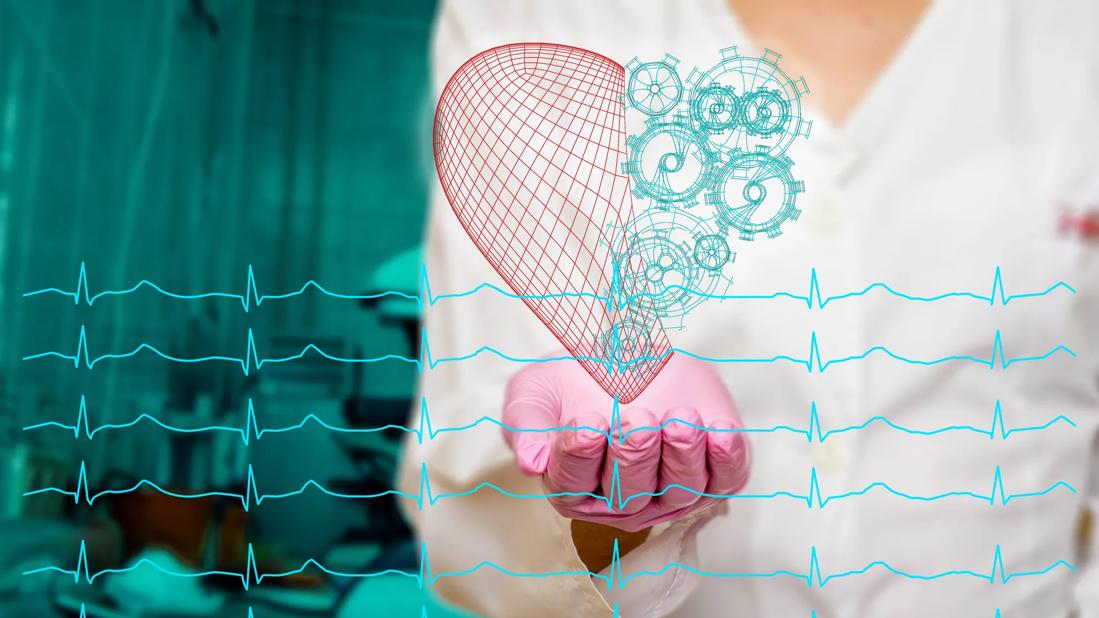
By: Dr. Perez-Villa, Florida-based Senior Engagement Partner for Cleveland Clinic Innovations
Note: This article is reprinted from Cardiac Care: An Update for Physicians from the Heart, Vascular and Thoracic Institute (Spring 2024)
Advertisement
Cleveland Clinic is a non-profit academic medical center. Advertising on our site helps support our mission. We do not endorse non-Cleveland Clinic products or services. Policy
It is vital to keep up with cutting-edge developments in the dynamic field of cardiovascular medicine, and many startups armed with pre-market technologies are ready to transform cardiovascular healthcare. Here, we present three promising technologies that may reshape how we address cardiovascular diseases.
Advanced NanoTherapies Inc. (ANT) has entered the spotlight with its proprietary nanotechnology-driven technology – SirPlux Duo Drug-Coated Balloon – which utilizes 100% biodegradable nanoparticles for precise drug delivery to the target site. This breakthrough technology extends beyond cardiovascular applications to offer noninvasive solutions for various medical conditions in specialties such as orthopaedics and neurology.
One of the hallmarks of ANT’s nanotechnology is its ability to provide sustained drug release and tissue retention, akin to stent-like patency, effectively thwarting restenosis. This is achieved with lower doses of sirolimus and paclitaxel, which harness their combined antiproliferative power. The SirPlux Duo DCB leaves no permanent implant behind, safeguarding long-term arterial health without the risk of late stent thrombosis and offers potential positive economic implications by reducing treatment costs compared to traditional stent-based interventions. In August 2023, ANT announced a $4M Series A extension from a prominent undisclosed strategic medical device company and the company plans to share angiographic data from its ADVANCE-DCB FIH trial in early 2024.
Advertisement
Cardionomic Inc. has created the Cardiac Pulmonary Nerve Stimulation (CPNS) system that holds promise as a potential game-changer in the treatment of acute decompensated heart failure (ADHF). CPNS is a catheter-based investigational device designed to provide acute (≤ 5 days) endovascular stimulation of the cardiac autonomic nerves in the right pulmonary artery, improving inotropy and lusitropy by increasing systemic perfusion and enhancing decongestion in ADHF. Early research has demonstrated that this system effectively increases cardiac contractility in patients with chronic heart failure while maintaining heart rate stability. Cardionomic Inc. is currently enrolling patients in the United States, the European Union, and Panama for the STOP-ADHF Study, which investigates the safety and performance of the CPNS System in patients hospitalized for ADHF.
Mitria Medical’s Subvalvular Spacer is a percutaneously delivered nitinol braid designed to treat mitral regurgitation with a focus on preservation rather than resection. The device is placed by puncturing the mitral valve annulus at the desired implant location, and then is delivered through known transcatheter techniques. This novel device sits at the hinge of the posterior leaflet, with the top (smaller) aspect sitting on the atrial side for anchoring, and the bottom (larger) aspect sitting under the leaflet to provide broad support to the displaced leaflet and associated subvalvular apparatus moving them anteriorly to restore coaptation and reduce mitral regurgitation. Mitria completed the first-in-human cases via a surgical approach, treating two patients and resulting in an acute reduction of mitral regurgitation (2-grade reduction from baseline) while maintaining a normal mean gradient after follow-up at 6 and 12 months.
Advertisement
Dr. Perez-Villa is a Florida-based Senior Engagement Partner for Cleveland Clinic Innovations.
Advertisement
Advertisement

Nonthermal technique reduces bleeding and perforation risk

Standardizing a minimally invasive approach for Barrett’s Esophagus and Esophageal Cancer

PSMA-targeted therapy for metastatic prostate cancer now offered at Cleveland Clinic Weston Hospital

Nationally recognized urologic oncologist offers vision for growth, innovation, and excellence

Noninvasive modality gains ground in United States for patients with early-to-moderate disease

Cleveland Clinic Weston Hospital’s collaborative model elevates care for complex lung diseases

Interventional pulmonologists at Cleveland Clinic Indian River Hospital use robotic technology to reach small peripheral lung nodules

Trained in the use of multiple focal therapies for prostate cancer, Dr. Jamil Syed recommends HIFU for certain patients with intermediate-risk prostate cancer, especially individuals with small, well-defined tumors localized to the lateral and posterior regions of the gland.